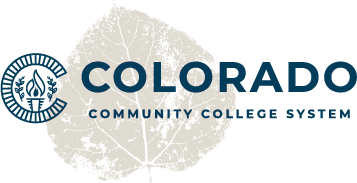CCCS News
Report: CCCS Students Have Competitive Advantage In College Economy

Georgetown study highlights growth in good paying jobs for middle-skills workers
Rapid innovation in technology is often the catalyst to shifts in American job trends. Most recently, the decline of the manufacturing economy since the 1980s – primarily due to globalization and automation – has led to a boom in information technology, healthcare, and other skills-driven industries.
A new report from the Georgetown University Center for Education and the Workforce (CEW) says the resulting growth in good jobs (determined by minimum and average salaries from three educational completion pathways) over the past 30 years has been especially positive for young workers holding the associate’s degrees and certificates earned at Colorado’s community colleges.
Shift to a “college economy” benefits CCCS students
Many employers are looking for skills development and hire students before they complete the certificate.
Nearly half of middle-skills jobs – such as emergency responders, electricians, mechanics, and construction specialists – qualify as good jobs with salaries greater than $35,000 per year and an average annual salary of $56,000. According to the CEW report, “good jobs are growing the fastest among workers with associate’s degrees, [and] education and training that support the middle-skills pathway have been particularly innovative and responsive to changes in labor market demand.”
Guiding students through college and into rewarding careers
At CCCS colleges, programs in skills-intensive areas like welding, automotive, and construction, are filled to capacity, says Dr. Sarah Heath, Associate Vice President for Career and Technical Education. “Many employers are looking for skills development and hire students before they complete the certificate. Close to 10% of our students attend CCCS colleges for upskilling in order to be more competitive in the workforce.”
Identifying and guiding students through career pathways has been a focus for CCCS and its colleges, which is why the System works directly with employers to make sure students are prepared to meet industry needs.
The Georgetown report brings to light what our colleges have to offer in terms of student preparation for entrance into an ever-changing workforce.
“This is particularly true for our CTE programs, which are pipelines to the bulk of middle-skills jobs,” added Dr. Heath. This is evidenced by overwhelmingly positive outcomes for Colorado CTE students, as 98% of students who complete college-level CTE programs are either working, enrolled in further postsecondary education, in an apprenticeship, or enlisted in the military. Of all employed CTE graduates, 77% are working in an occupation related to the CTE program they completed.
CCCS also provides leadership for all educational levels of CTE, helping students develop high-demand skills and navigate the academic journey from middle school through a community college certificate or degree. More than 160,000 students were enrolled in middle school and high school CTE programs across 281 schools in the 2016-2017 academic year.
Preparing for jobs of the future
Growth in middle-skills jobs will likely continue as technological innovation moves forward at a blistering pace. Last year, a report from Dell Technologies predicted that 85% of the jobs that will exist in 2030 have not been invented yet. And many of those jobs may first appear close to home for Colorado students, since the Denver Metro area is one of the fastest-growing tech markets in the country.
“The economy continues to evolve and expect more from its young workers,” said CCCS President Joe Garcia. “The Georgetown report brings to light what our colleges have to offer in terms of student preparation for entrance into an ever-changing workforce with a competitive advantage and a commitment to lifelong learning.”


